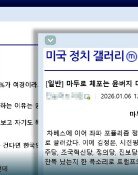Government launches inquiry into deceptive price hikes
Government launches inquiry into deceptive price hikes
Posted November. 18, 2023 08:56,
Updated November. 18, 2023 08:56
The Korean government has taken a proactive stance by initiating a fact-finding investigation into the phenomenon of expedient price increases, commonly referred to as 'shrinkflation.' This strategic move aims to curb the deceptive practice of raising prices by reducing product capacity while maintaining the appearance of unchanged pricing. In a meeting convened on Friday, the government gathered Vice Ministers on Price Relations to address this concern, categorizing shrinkflation as "not an honest sales practice." During the meeting, it was announced that a thorough fact-finding investigation would be conducted by the end of this month. Additionally, the government plans to establish a reporting center to facilitate the submission of reports on instances of shrinkflation.
In recent times, companies have employed subtle tactics to increase prices without overtly raising them, making it challenging for consumers to discern these changes easily. For instance, some products now contain fewer items, such as a reduction in corn dogs per package from the previous standard. Similarly, canned tuna's content has decreased slightly from 100g to 90g. Another deceptive practice, known as 'skimflation,' involves diminishing product quality by lowering the juice content in beverages. The prevalence of such tactics underscores the necessity for regulatory crackdowns to protect consumers from potential harm.
Nevertheless, it is essential to acknowledge that these deceptive practices are, in essence, unintended consequences stemming from the government's implementation of artificial price controls. In a recent move, the government appointed vice ministers from each ministry as 'officers responsible for price stability' and further designated managers for specific products, such as 'bread manager' and 'ramen secretary.' This heightened regulatory environment and increased pressure to freeze prices prompted companies to resort to expedient methods to maintain profitability. There is a looming concern that if oversight and management supervision become lax in the future, suppressed prices might surge abruptly, leading to potential market disruptions.
The ongoing battle against rising prices has proven to be more prolonged than initially anticipated. The International Monetary Fund (IMF) has adjusted Korea's inflation forecast, projecting a rate of 3.6% for this year and 2.4% for the next year, reflecting an increase of 0.2 and 0.1 percentage points, respectively, compared to the previous estimate. To instill price stability, the IMF recommends maintaining a high-interest-rate policy over an extended period and cautions against hastily easing monetary policies. The suggested approach emphasizes the need for a direct and proactive stance through monetary policy to counter the upward trajectory of prices. This strategy prioritizes addressing inflation directly rather than relying on secondary measures that exert pressure on companies.
The noteworthy reversal in the U.S. inflation rate, which soared to over 9% just a year and five months ago but significantly dropped to a low of 3% last month, can be attributed to a fundamental shift towards fiscal restraint. The U.S. experienced a substantial decrease in its money supply, amounting to 5.3% from March last year to September this year. In contrast, despite Korea's efforts to tighten monetary policy during the same period, the money supply in the country increased by 5.1%. There is a pressing need to curtail the money supply while mitigating potential repercussions, such as triggering an economic recession. It is imperative to adopt a comprehensive approach that transcends the reactive 'whack-a-mole' method of addressing isolated price hikes in specific items.



![[속보]내란특검 “尹, 전두환 세력보다 엄정하게 단죄해야”](https://dimg.donga.com/c/138/175/90/1/wps/NEWS/IMAGE/2026/01/13/133151025.3.jpg)
![[속보]윤석열 ‘내란 우두머리 혐의’ 사형 구형…내달 1심 선고](https://dimg.donga.com/c/138/175/90/1/wps/NEWS/IMAGE/2026/01/13/133151126.3.jpg)


